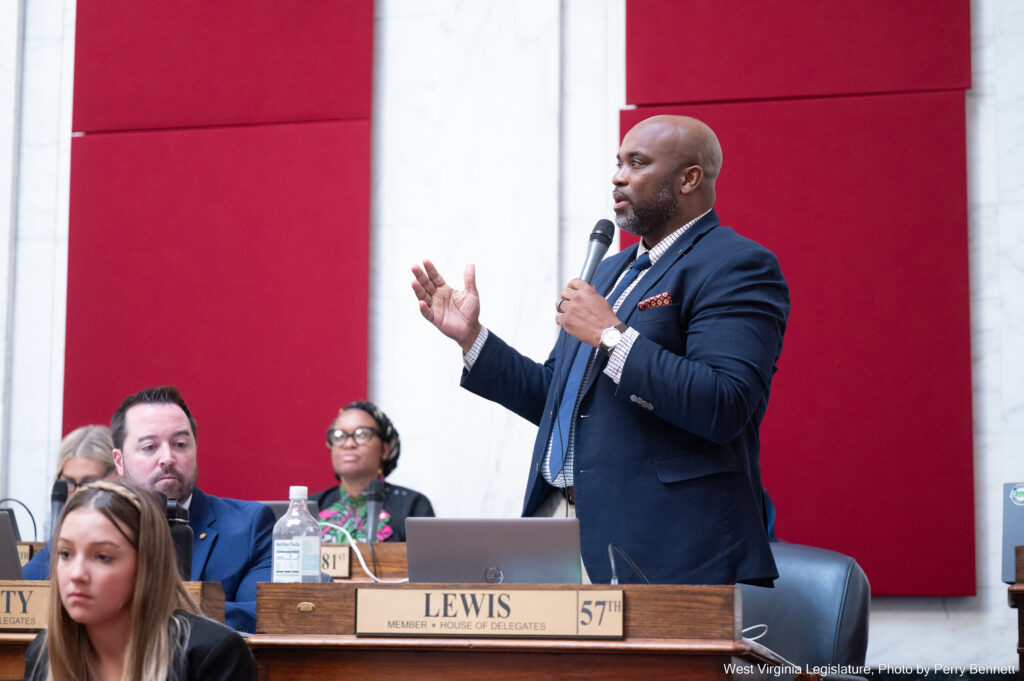Poet Writes On Grief, Nature And Hurricane Helene In New Book
Poet Michael Hettich spoke with Inside Appalachia Producer Bill Lynch about his latest book of poetry, "A Sharper Silence."
Continue Reading Take Me to More News
After receiving messages from the Senate and committees and passing two resolutions, members of the West Virginia House of Delegates moved to have each bill up for passage be read in full, a measure lawmakers use to give more time to hash out legislative issues.
Delegates passed Senate Bill 565 without discussion or debate after having it read in full. If the Senate concurs with the House Health and Human Resources Committee’s amendment to the bill, the legislation would broadly expand the practice of optometry West Virginia by allowing optometrists, the doctors who diagnose and treat eyes, to perform some surgeries that currently only ophthalmologists, or eye surgeons, are allowed to do.
The Senate wrestled with the legislation before sending it to the House for its consideration, with proponents arguing it would reduce waitlists in West Virginia for eye surgeries that optometrists are trained, but not currently permitted, to do.
Opponents, like Sen. Tom Takubo, R-Kanawha, worry about the qualifications of optometrists to perform these surgeries safely.
“The problem with the bill is these individuals could be trained in a 32-hour course,” Takubo said on the Senate floor on March 10. “Including emergency management of complications in the eye itself, causing acute blindness or filling up with blood and having never performed this on a human being, leave there, go to their office with no supervision whatsoever, and perform these procedures.”
The House Health and Human Resources Committee changed the certification requirements for an optometrist to be licensed to perform eye surgeries, like laser eye surgery, during its April 4 meeting.
The committee also amended the bill to include a requirement for anyone certified to perform these surgeries to report any adverse outcomes to the West Virginia Board of Optometry within 10 business days.
Finally, the committee amended the bill to not allow an optometrist to operate on a pediatric patient, instead mandating that they refer them to an ophthalmologist.
A bill that garnered discussion and debate aims to discourage gang activity in West Virginia.
Senate Bill 617 adds gang activity to offenses punishable in state code and updates eligible punishments. It was not read in full but amended on third reading by Del. J.B. Akers, R-Kanawha.
“This amendment simply clarifies to satisfy constitutional concerns regarding this new section of code if this passes, so that an individual will not be considered to be part of a conspiracy or gang involved in the conspiracy, simply as membership, they have to actually be actively engaged in a crime.” Akers said.
Akers’ amendment was adopted, but the bill was further debated by lawmakers attempting to amend certain provisions in the measure.
Del. Hollis Lewis, D-Kanawha, tried to amend the bill to take out the words informal and formal and replace them with language he said would clarify the intent of the legislation.
“I don’t know how you’re informally part of a gang,” Lewis said. “You actually have to do something to actually part of, you know, an organization. When we think about this think, you know, the bloods, the crips, M13, aryan nation, different gangs of nature, where they, you know, take on codes, assemble with one another to be informally part of an organization.”
Lewis’s amendment failed after Del. Brandon Steele, R-Raleigh, rose to speak against the amendment and “give you guys a little bit of a history lesson.”
“The way that the bill is set up right now, you actually want it to be somewhat vague, so that it can be applied to a group of people that might just crop up next week after we pass this bill,” Steele said.
The House amended many bills on second reading on a variety of topics, from testing for substance use disorder in rehabilitation facilities, to repealing the section of state code that created the A. James Manchin Rehabilitation Environmental Action Plan, to a bill permitting compressed air and rimfire shooting teams in public schools.
The House moved all bills on first reading, but two. The body rejected a bill on first reading to change the distribution of income from the excess lottery fund and postponed action on the Safer Communities Act.